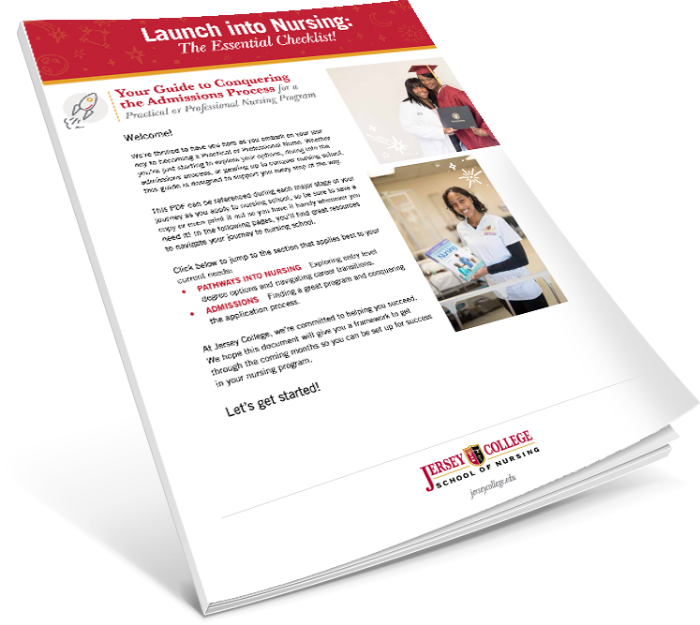
LPN vs. RN: What's the Difference?
LPN vs RN Job Duties
Day-to-day job duties comprise one of the major differences between LPNs and RNs.
LPNs usually report to RNs. Their duties cover many aspects of patient care while also maintaining an organized and sanitary office space.
The specifics of these tasks depend on the type of healthcare environment. For example, an LPN working in a nursing home may have dramatically different daily duties than an LPN in a hospital or emergency room.
Some common LPN job duties include:
- Collecting patient info such as weight, height, and heart rate
- Monitoring vital signs
- Clearing and sanitizing equiptment
- Assisting with daily tasks, including bathing, eating, drinking, and personal grooming
- Maintaining daily records and submitting reports to their supervising RN
- Administering medication
- Bandaging and taking care of wounds
Registered nurses have undergone longer courses of study and often specialize in a particular area of care. For these reasons, they typically have more responsibilities than LPNs.
For instance, RNs have more control over patient care and often communicate directly with families. They usually report to physicians and can have different daily tasks depending on the type of facility where they work.
Common RN job duties include:
- Assessing patient status and recording observations
- Starting IVs and distributing oral and IV medication
- collecting blood samplesPerforming physicals
- Conducting diagnostic tests
- Educating patients and families on the patient’s condition and at-home care
- Consulting and collaborating with physicians to determine treatment
Both LPNs and RNs play fundamental roles in caring for patients and keeping their hospitals and clinics running. Patients would not be able to get the care they need without capable and highly trained nurses standing at the ready.

FREE Essential Guide to Nursing School: Get Accepted, Survive, and Thrive!
LPN vs RN Educational Requirements
Though there's plenty of overlap, prospective LPNs and RNs have different curriculums and expectations. It can take anywhere from two to four years to become an RN depending on the degree program. LPNs usually receive their certification in one year to eighteen months.
| Role | Degree Type | Typical Time to Complete |
|---|---|---|
| LPN | Nursing Diploma or Practical Nursing Certificate | 12-18 months |
| RN | Associate Degree in Nursing (ADN) | 2-3 years |
| RN | Bachelor of Science in Nursing (BSN) | 4 years |
Program length is subject to change and is determined based on a number of factors, including, but not limited to: (i) pace of completion, (ii) quantity of credits taken per term, (iii) repeats of coursework, and (iv) leaves.
Some four-year colleges and universities offer an accelerated BSN program for graduates who already hold a bachelor's degree in a field other than nursing.
Curriculum Differences
The LPN curriculum focuses on assisting RNs and physicians, maintaining a safe and sanitary clinic environment, and providing basic care for stable patients.
Some subjects covered in LPN programs include:
- Nursing fundamentals
- Nursing ethics
- Nursing theory
- Anatomy and physiology
- Documentation and medical terminology
- Infection control and prevention
- Patient safety
- Medical administration
- Mental health and wellbeing
RNs learn many of the same subjects as LPNs, but their studies focus on providing primary care for patients. They also learn management skills and how to work in acute-care settings.
Some topics covered in RN programs include:
- Nursing fundamentals
- Nursing ethics
- Nursing theory
- Anatomy and physiology
- Microbiology
- Chemistry
- Nutrition
- Nursing care
- Population-based practice
- Clinical rotation
Many LPN and RN programs partner with hospitals to allow students to supplement their education with hands-on experience in a clinical setting.
Related Resources:
LPN vs RN Licensing
Once you've earned your certificate or degree in nursing, you'll need to take the National Council Licensure Examination (NCLEX) in the state where you plan to practice. Both exams cover similar content, but focus on different aspects.
Aspiring LPNs take the NCLEX-PN. Exam topics include basic patient care, following instructions, and providing assistance to RNs.
Soon-to-be RNs take the NCLEX-RN. The test covers the same material as the NCLEX-PN but with sections about supervising nurses and making decisions about patient care.
Other licensure qualifications and requirements vary state by state. Some states require a criminal background check. All nurses must be thoroughly educated on the specific laws governing nursing in the state in which they wish to practice.
Nursing licenses must be renewed periodically. The window varies, but most states require a license renewal every two years.

Sign up to get new articles in your inbox and stay updated on our nursing programs.
LPN vs RN Salaries
Due to their more rigorous educational background and higher degree of responsibility, RNs tend to earn higher salaries than LPNs. According to the Bureau of Labor Statistics, the average annual salary was $59,730 for LPNs and $86,070 for RNs in 2023.
Related Resources:
LPN vs RN Industry Placement
RNs and LPNs sometimes work in different environments.
About 35% of LPNs work in nursing and residential care facilities. You're less likely to work in hospitals, home healthcare services, or government facilities as a licensed practical nurse.
On the other hand, 60% of RNs work in state, local, or private hospitals. 18% work in outpatient settings, while only 6% work in nursing or residential care facilities.
LPN vs RN Career Advancement Options
LPNs and RNs have different options available to advance their careers. There are also limitations associated with each career path, which are primarily determined by the level of education involved.
Common LPN jobs include occupational health, rehabilitation, palliative care, and geriatric care. Since the educational requirements differ, LPNs cannot become RNs based on experience alone. The best way for LPNs to advance their careers and earn more money is to become an RN, such as through an LPN to RN bridge program.
RNs typically work in hospitals, home healthcare, and outpatient centers. They can advance their careers by earning their MSN degrees or by earning certificates that qualify them to fill upper-level management roles or perform more specialized tasks. The highest-paying options include becoming a registered nurse anesthetist, nursing administrator, neonatal intensive care nurse, or general nurse practitioner.
Which Career Path is Right for You?
The best career path depends on various factors, many of which are unique to you. Only you can decide on the right career path for you; however, Jersey College is always happy to provide guidance.
Ask yourself the following questions:
- What level of salary do I need to support the lifestyle I want to have?
- How soon do I need to start working in my chosen field?
- Is a shorter path better for my current situation?
Learning more about how to become an LPN and how to become an RN can help you decide which option is right for you. Keep in mind that you can always decide to continue your education later. Many Jersey College campuses offer LPN to RN bridge programs designed to help licensed practical nurses advance their careers.
Whichever path you choose, becoming a nurse is a tremendous achievement that guarantees a demanding but endlessly rewarding career.
Start your journey with us by contacting our admissions office for more information today!
Find Your Campus
Based on the success of our programs, we have grown to serve communities in 7 states (and counting!). Find a campus near you to start your NurseLife.

